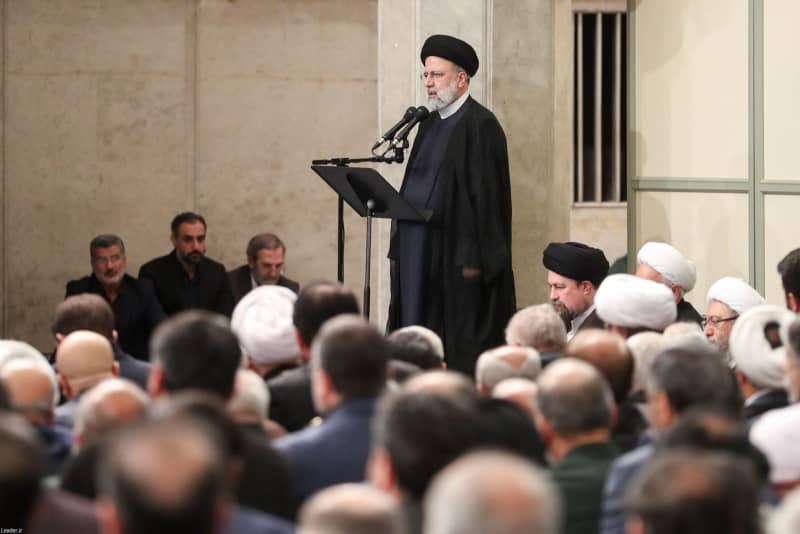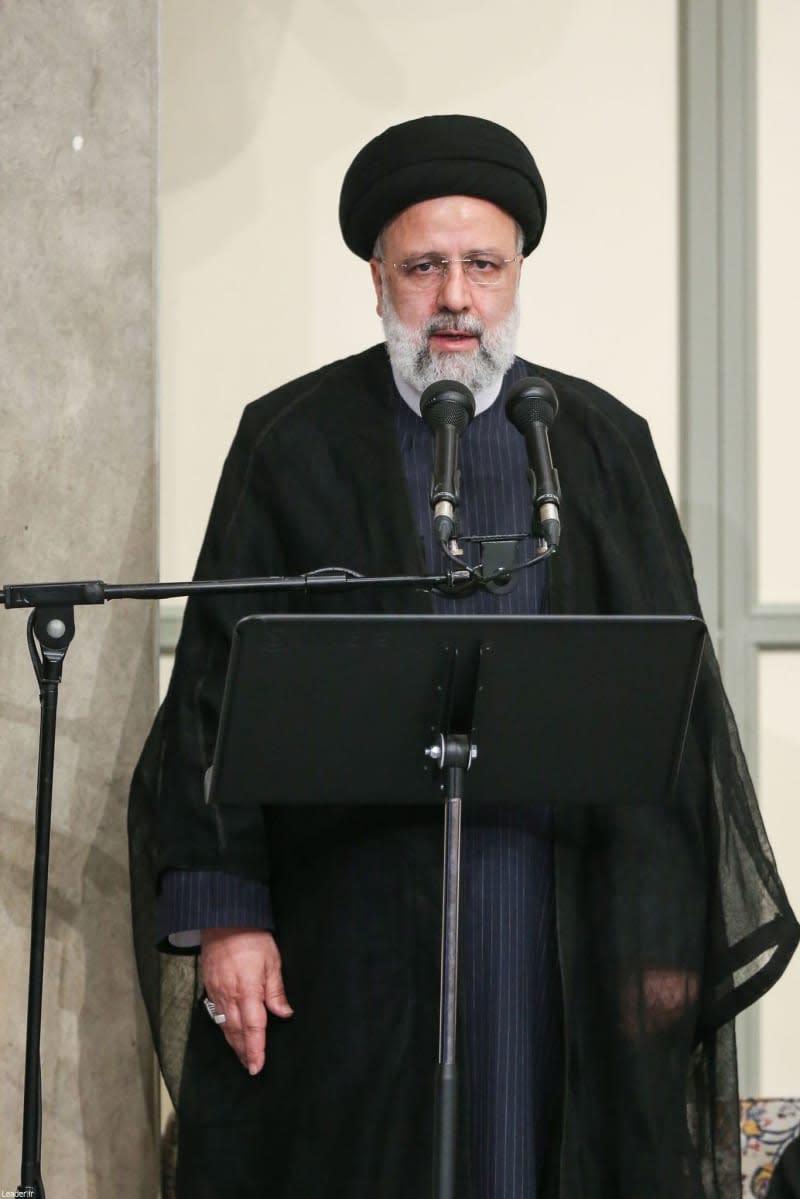Iran's Raisi again threatens Israel for Damascus attack

- Oops!Something went wrong.Please try again later.
- Oops!Something went wrong.Please try again later.
Iranian President Ebrahim Raisi again threatened retribution for a suspected Israeli airstrike on an Iranian embassy building in Syria's capital Damascus in which several people were killed.
The attack "will not go unanswered" and of course retaliation and revenge will be taken, Raisi said in a speech on Iranian television on Wednesday. The attack showed that Israel would not shy away from any "crime," he said.
On Tuesday, Raisi had already threatened to respond to what he called a "terrorist crime."
Iran's supreme leader, Ayatollah Ali Khamenei, also threatened retaliation.
On Monday, two brigadier generals and five other members of Iran's Islamic Revolutionary Guard Corps (IRGC) were killed in an airstrike on the Iranian embassy compound in the Syrian capital Damascus.
According to the Iranian news agency Tasnim, six Syrian citizens were also killed. The IRGC is Iran's elite military force and is considered more powerful than its conventional armed forces.
Iran's Foreign Ministry blamed its arch-enemy Israel for the attack.
The US government also believes that Israel is responsible.
Israel has not commented on the incident, but on Wednesday the military stated its intention to mobilize missile defence reservists.
The army did not explicitly state the reasons for this, but Israeli media reported that the background to this was threats from Tehran.
Since the Islamic Revolution of 1979, Israel has been Iran's declared archenemy.
Since the 1990s, Tehran has expanded its political and military ties in the region to create a so-called "axis of resistance" against Israel with allied Shiite militias in various Arab countries.


